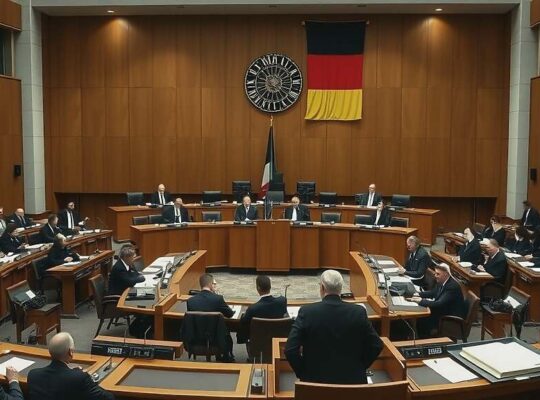A stark warning has been issued regarding the potential marginalization of small and medium-sized enterprises (SMEs) in the awarding of public infrastructure projects. Jörg Dittrich, President of the German Crafts Association, has publicly criticized the stance of several state governments, accusing them of exhibiting a “medium-sized enterprise-hostile” approach to the proposed acceleration of procurement laws.
Dittrich, in an interview with the “Neue Osnabrücker Zeitung”, urged the states to approve the compromise reached with the federal government on the law, emphasizing the critical need to maintain the principle of awarding contracts based on specialized expertise and dividing projects into smaller components. This principle, as outlined in the cabinet decision, is now under threat due to concerns raised by some states.
These concerns revolve around perceived bureaucratic complexities that prolong the procurement process. Dittrich dismissed these anxieties as “tenuous” branding attempts by certain states to circumvent the established framework with vague justifications such as “temporal” or “subjective reasons” as unacceptable.
He cautioned that diluting the current system would effectively shift the landscape towards comprehensive contract awards, a move that would overwhelmingly benefit large corporations at the expense of local craft businesses. These smaller enterprises, he stressed, are vital cornerstones of local economies, responsible for apprenticeships, community integration, youth sports sponsorship and essential public services. To effectively exclude them from public contracts would be, in his words, “barely conceivable in its hypocrisy.
While acknowledging the urgent need to accelerate construction timelines, Dittrich pointed to the inefficiency of the political process itself, questioning why efforts weren’t being concentrated on streamlining approvals, planning and resolving legal disputes – arenas where significant time savings could be realized. The proposed legislation now faces a critical hurdle as it requires approval from the Federal Council, highlighting the precarious position of SMEs and the potential for a significant shift in the future of public procurement.












